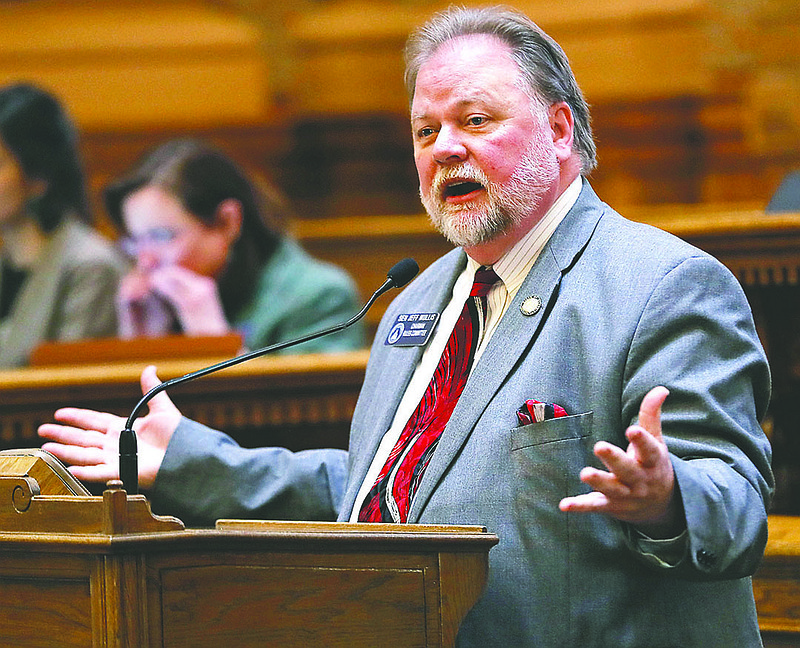After a secret recording sank his political ally's governor campaign last year, Georgia State Sen. Jeff Mullis and Republican leadership are rallying to block similar bombshells in the future.
Mullis, R-Chickamauga, dropped a bill Tuesday that would ban people in the state from recording somebody without their permission. Georgia is currently a one-party consent state, meaning only one person in a conversation has to know that they are being recorded.
In June, during the early weeks of Casey Cagle's runoff campaign against Brian Kemp in the Republican primary, a damaging recording of Cagle leaked to Atlanta media outlets. During a conversation with Clay Tippins, another Republican governor candidate, Cagle said he pushed a "bad" education bill to keep campaign contributions away from a political opponent. About seven weeks later, Kemp overwhelmed Cagle in the primary, winning 69 percent of the vote.
On Friday, Mullis told the Times Free Press that his bill is not revenge for what happened between Cagle and Tippins. He conceded the event brought his attention to the one-party consent law, but he argued that the problem is much deeper than just one campaign.
"If somebody is going to record you, they should tell you," he said. " This is about right and wrong. Not Casey Cagle."
He pointed out that 12 states have similar laws, requiring more than one person in a conversation to know that a recording is happening. Florida is an all-party consent state, while Tennessee remains among the 38 one-party consent states.
The legislation has the support of the who's who of Republican Senate leadership. In addition to Mullis, who chairs the influential rules committee, the bill's sponsors include President Pro Tem Butch Miller, Majority Whip Steve Gooch, Majority Caucus Vice Chairman Larry Walker III and Majority Secretary John Wilkinson.
On average, the sponsors have served 11 years in the legislature. Like much of the state's political establishment, they backed Cagle. Between the six, they donated $53,850 to his campaign.
The bill has not had a hearing in the Senate Judiciary Committee, but it has already drawn some public backlash. Georgia First Amendment Foundation board member John McCosh said the bill concerns him for several reasons.
First, he said, all-party consent laws unintentionally hurt crime victims. A domestic violence victim may need to secretly record threats to present as evidence for a restraining order. An elderly resident may record phone scammers before filing a complaint with the police.
McCosh said the bill leaves some practical questions unanswered. If a homeowner installs technology with a camera on a doorbell so they can see who is on their front porch, would this law make the product illegal? What if somebody streams a large meeting on Facebook Live? Will they need permission of every person in the room?
McCosh argued that secret recordings have also exposed malicious wrongdoing by powerful people.
"The time-honored practice of using hidden cameras and surreptitious recordings by investigative journalists would also be chilled," he said. "That technique has done a lot of public good in holding government and business institutions to account."
In a column for the website All On Georgia, contributor Jessica Szilagyi wrote that Mullis' bill would have prevented a story she wrote last year about Tattnall County Magistrate Court Judge Eddie Anderson denying her request for public filings.
Asked about these criticisms, Mullis said he is open to some carve-outs in the bill when it goes to committee. For example, he wants an exception for law enforcement purposes. He is not yet clear what specifically that will look like.
"The Judiciary Committee is full of lawyers," he said. "We'll perfect it and make whatever changes we need. I want this to be a good bill."
Contact staff writer Tyler Jett at 423-757-6476 or tjett@timesfreepress.com. Follow him on Twitter @LetsJett.
